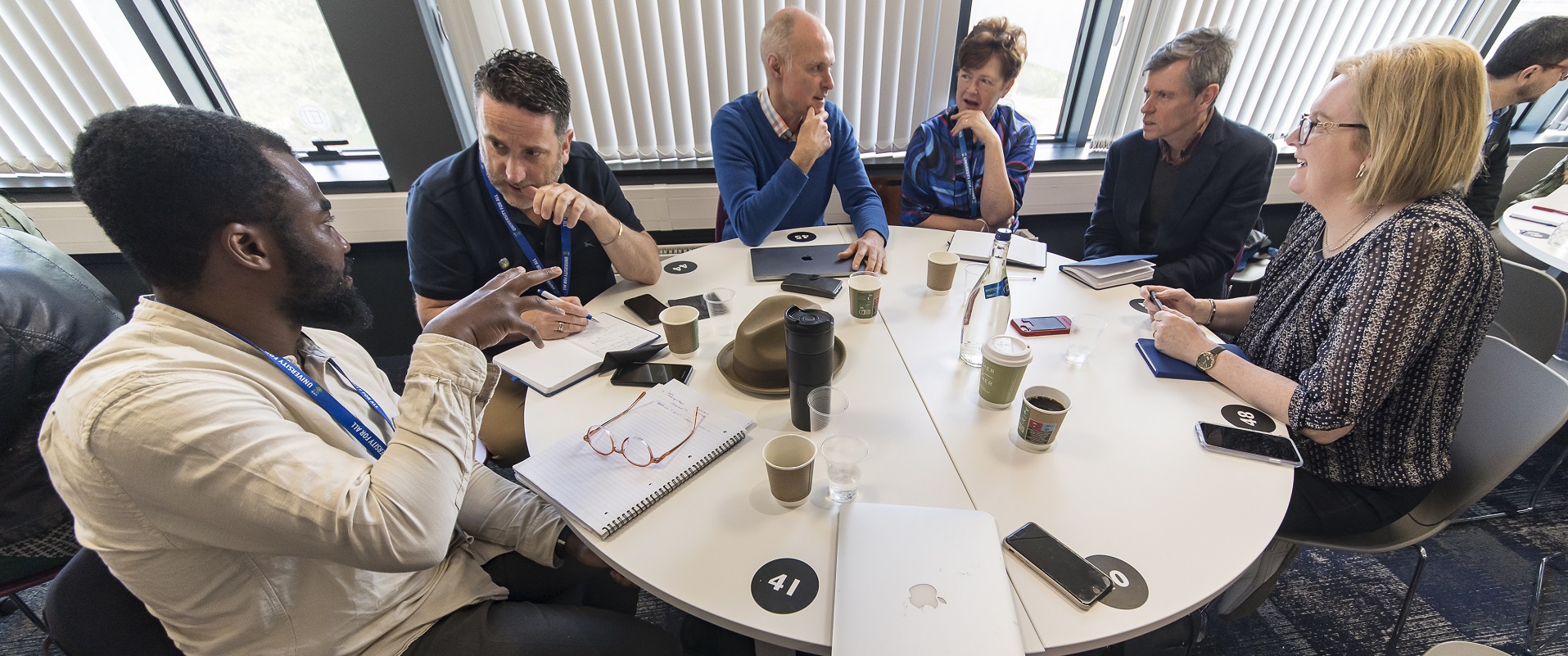
UCD Staff
Recognition of Prior Learning (RPL) is a process by which prior learning is formally valued. It is a means by which prior learning is identified, assessed, and recognised by an educational institution as part of its programmes, courses, and/or modules on the National Framework of Qualifications (NFQ). This allows an individual to build on learning achieved and to be rewarded for it. It provides a process to avoid duplication of learning.
The collection of data is essential to gauge the extent of RPL activity underway in the University, to identify trends and to track progress against a baseline. Data is also a key component in advancing the resourcing, further mainstreaming, and longer-term sustainability of RPL and related activity.
A Technical Definition for RPL Data in UCD has been prepared. This document summarises which activities should be captured and reported as RPL activity in UCD. A common technical definition is a key component of consistent data collection institutionally.
In assessing applications relating to learning previously accredited at UCD (normally submitted as part of a transfer application process), the following information should be considered:
- The official UCD transcript.
- Module/Course title, code and credit value.
- Grade/Mark awarded on completion of the module/course.
- Time elapsed since prior learning was achieved.
- Advances in the relevant field(s) of study.
- Does the learning relate to specific UCD modules in the new programme?
In assessing learning accredited at another Higher Education Institute, the following information should be considered:
- Knowledge of the former institution.
- The previous academic record/transcript, including the name of the course or programme of study and NQAI level.
- Syllabus and course description, learning outcomes, number of contact hours, form of assessment(s). Where an application applies to a module(s), this information should be assessed for each module.
- Time elapsed since prior learning was achieved.
- Advances in the relevant field(s) of study.
- Does the learning relate to specific UCD modules?
In assessing experiential learning applications, the following questions should be considered:
- How much experience does the applicant have and in what roles?
- What is their identified skill set?
- What evidence is provided? What information is provided through references?
- What training have they attended and when?
- What learning outcomes have been met based on their prior learning?
- How relevant is their experience to the UCD programme of study (including specific modules)?
- To what extent do their learning outcomes apply to the current UCD programme of study (including specific modules on the current curriculum)?
- Does the learning relate to specific UCD core/option/elective modules?
- What period of time has elapsed since the prior learning was achieved?
- What advances have been made in the relevant field(s) of study?
Applicants are advised of a number of approaches to mapping and assessing prior experiential learning in order to demonstrate learning outcomes. They are asked to provide information according to the following areas:
- What is your main reason for considering third level education now and how best would RPL contribute to this?
- Future learning plan and the role of RPL in this.
- Life/work experience, including experience and skills gained through volunteerism/care work.
- Education details: second level and any subsequent education and training courses undertaken, including work-related training
- Other achievements, including awards or prizes or publications.
They are also advised that they may also be required to do one or more of the following:
- Complete a portfolio of evidence,
- Attend at an interview,
- Undertake a simulation/practical exercise,
- Undertake a diagnostic test(s),
- Complete a piece of work or special assignment,
- Produce an artefact.
Applicants should where possible be informed of the RPL outcome/status of their application within four weeks of submission.
A RPL Implementation Steering Group was set up in Q1 2022 to set the strategic direction for the implementation and optimisation of RPL practices in the University. The steering group meets monthly to discuss and make decisions on key activities and also provides a forum for escalation of issues which cannot be dealt with locally. Key activities include:
- Review and update of the RPL Policy to ensure it remains current and representative of University practices.
- To drive standardisation and optimisation of RPL practices.
- To develop tools and resources (staff & student guides etc) to support the implementation of RPL processes.
- To improve awarenessof the UCD RPL policy and procedures among faculty, staff and learners.
- Analysis of RPL data and identification of any trends.
- To define and deliver on RPL project priorities.
Steering Group Members can be found here
RPL Steering Group Terms of Reference can be found here
- Recognition of Prior Learning Academic Policy
- UCD online RPL applications
- National RPL Framework Document
- RPL National Technical Definition Document
- Information on learning outcomes and levels of learning can be found on pages 71/72 of the Academic Regulations
- (opens in a new window)Information on module descriptors/programmes
- UCD RPL Learner Guide
The RPL Community of Practice is an informal network of staff who manage RPL queries and applications from initiation, through the assessment phase to the potential awarding of RPL.
The purposeofthe RPLcommunity of practice is:
- To build and share knowledge
- To create a common setoftools, templates, and waysofworking
- To build recognitionofRPL
- To build networks (a friendly forum ofwhich to ask questions and to share information on training opportunities, conferences, online resources, etc)
The schedule of meetings is every four to six weeks for an hour. If you are interested in becoming involved please email (opens in a new window)annemarie.lawley@ucd.ie
